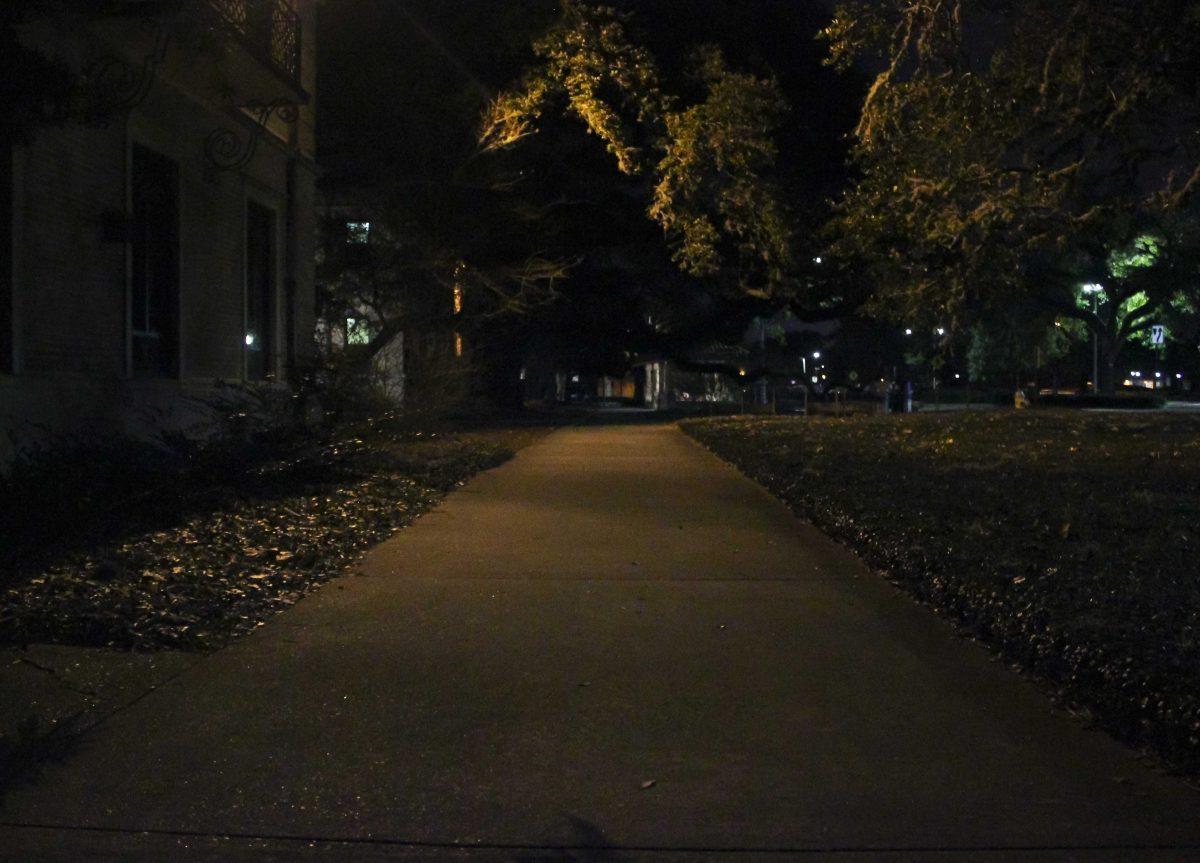Many Universities across the U.S. have emergency blue light boxes, that with a push of a button can notify the campus police department of an emergency at that location. According to Campus Safety Magazine, the emergency boxes serve as visual forms of security.
So where are these emergency boxes at LSU? Resources such as the SHIELD app work better, Interim Vice President for the Office of Civil Rights and Title IX Jane Cassidy, says.
LSU sent a broadcast email listing the myriad of safety resources available to students both on and off campus. The university has been turning its focus toward safety, especially regarding sexual misconduct, in recent semesters. LSUPD and the Office of Title IX both offer services that allow students to report incidents and ask for help.
“Your safety is of utmost importance to us,” the email said.
Cassidy said she thinks the SHIELD app is more effective than emergency boxes because GPS trackers on phones allow for the police to have more accurate tracking information. She said the emergency boxes are stationary, so they aren’t helpful in cases of abduction or situations where a potential victim would need to be on the move.
“If you’re between two of the posts, the police won’t have your exact location,” Cassidy said. “But if your phone is always on you, the police can find you in a case of abduction.”
The university recommended in the email that instead of walking across campus at night or using a rideshare like Uber or Lyft, students should use a campus bus instead.
“These routes service both on campus and off campus locations and are a great alternative for students who may not have a vehicle or find themselves in need of transportation to and from campus after hours,” Transportation Demand Manager Joshua Galasso said.
Galasso said there are over 60 passengers on a weekly basis on the night routes. He said the pandemic substantially hindered passengers from riding the transits, but rates are slowly increasing as operations go back to normal. He said the numbers still aren’t close to what they were in 2018 before the pandemic.
“Focused on student safety, this program was developed with the goal of providing students with a dependable and responsive transportation option at night,” Galasso said.
LSU’s transit services are completely free for students and can be accessed on the TransLoc app.
LSUPD teamed up with the Student Health Center in recent years to offer a Rape Aggression Defense (RAD),a 12-hour self-defense course.
According to Cassidy, Title IX’s role in campus safety has significantly increased over the past several months, and the office now has two overarching goals: support and prevention. She said victims of sexual assault can use the revamped Title IX office to get the help they need, whatever form that may take. She also said they’re working on educating both faculty and students so these incidents don’t happen at all.
“It’d be nice if you didn’t need an office like this,” Cassidy said.
Cassidy said the Title IX office has all the resources survivors need to begin the healing process as well as to bring the perpetrator to justice. She encourages students who have experienced any form of sexual assault to visit their office at 118 Himes Hall.
“We have a culture that teaches people the wrong things,” Cassidy said. “It takes a lot of courage to go through with the [reporting and recovery] process.”
Cassidy also said the Title IX office hopes to better educate the LSU community so these crimes don’t happen in the first place. She said people have to learn “what consent means” and how decisions are impaired when influenced by drugs and/or alcohol.
“We have to respect each other,” Cassidy said. “And if we’re going to respect each other we’ll learn to get consent from each other.”





